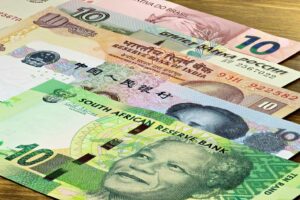Hong Kong is set to announce its 2024-2025 budget Wednesday as its economy regains some momentum but remains far from solid. China’s own shaky recovery, geopolitical tensions and weak global demand in a high interest-rate environment cloud the outlook as the city grapples with an equities market slump and an anemic property sector.
Growth has been picking up, but the recovery hasn’t been as strong as expected, Financial Secretary Paul Chan has said. The external environment remains volatile, and “as a small and fully open economy, Hong Kong will continue to face challenges.”
Analysts expect budget measures to be aimed at boosting Hong Kong’s competitiveness, as the city looks to solidify its recovery.
Here’s what to watch:
DEFICIT: Hong Kong is widely expected to report a bigger fiscal deficit for the fiscal year ending in March.
KPMG expects a fiscal 2023-2024 deficit of HK$130 billion on lower land-related and stamp-duty revenue. When the budget was announced last year, a HK$54.4 billion deficit had been forecast.
This would mark the second year of a deficit above the HK$100 billion mark. Despite the fiscal constraints, rejuvenating the economy means high spending. “More stimulus will be needed,” UOB economist Ho Woei Chen says, expecting focus to shift to longer-term competitive issues, with selective and targeted support measures.
RESERVES: The government could deploy its reserves to enhance competitiveness, says John Timpany, head of tax in Hong Kong at KPMG China.
The government is still “well-positioned to make good use of its fiscal reserves,” he says, for example by encouraging more regional headquarters to be set up in Hong Kong via tax incentives. That would boost the economy, help local businesses grow and bolster the city’s hub status.
KPMG sees Hong Kong’s fiscal reserve standing at HK$705 billion as of end March 2024; PwC projects HK$724.8 billion, or around 11 months of expenditure.
CAPITAL: Measures to spur more investment are also on the wish list.
Initiatives to encourage investments in key sectors need to be promoted, and additional measures to anchor more quality investments in the city rolled out, PwC South China and Hong Kong Tax Leader Charles Lee says. “This should be complemented by an acceleration of Hong Kong’s tax treaty network expansion, along with measures to alleviate the burden faced by large multinational enterprises in scope for the upcoming global minimum tax rules.”
Cultivating the green economy is another avenue, which would tap sustainability-focused investment, CPA Australia says. It also wants to see more support for small and mid-sized business and a comprehensive review of the tax system.
OUTLOOK: Comments on how the economy is faring and what’s ahead will also be in focus. Final fourth-quarter GDP data, also due Wednesday, will likely be in line with advance estimates showing growth accelerated on tourism and personal consumption. For the 2023 calendar year, GDP growth was estimated at 3.2% in real terms, reversing from a contraction in 2022 but undershooting consensus views.
If the budget lives up to expectations, that could give the stock market a welcome boost, particularly for sectors like property and financial services. The benchmark Hang Seng Index has been on downward trend for the past year, with 12-month losses of over 15%. But it has clawed back ground recently, with year-to-date losses at 1.5%.
Write to Fabiana Negrin Ochoa at fabiana.negrinochoa@wsj.com
Read the full article here












